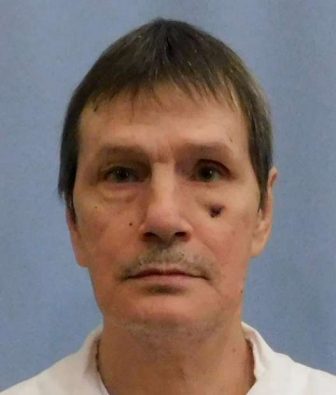Attorney to Document Inmate’s Injuries Following Failed Execution
An attorney and medical expert will visit Holman Correctional Facility on Sunday to document injuries following the botched execution of Doyle Lee Hamm. Bernard Harcourt, Hamm’s lawyer, will take Mark Heath, a cardiac anesthesiologist, to do a full medical evaluation on Hamm’s injuries. Hamm, the prisoner who was set to be executed Thursday, suffered serious injuries when the attempted lethal injection failed, Harcourt said Saturday.
Hamm has lymphatic cancer and carcinoma, and hepatitis C and past drug use have also compromised Hamm’s veins, Harcourt argued. Those factors made lethal injection a cruel and unusual execution method for Hamm, Harcourt said Saturday.
Harcourt said he’s been arguing this for months to state and federal officials. He visited Hamm Friday afternoon.
“I was able to look at his legs and see the puncture wounds below his knees and on his ankle and feet,” Harcourt said. “He’s limping badly. He’s terribly sore, particularly in his groin, and scarred, but he’s got good spirits.”
Chief U.S. District Judge Karon Bowdre on Friday ordered a medical evaluation on Hamm and called for the state to preserve the clothes he was wearing the night of his planned execution. On Thursday, Hamm’s lethal injection was to be administered through Hamm’s leg. But it didn’t work. Jeff Dunn, Alabama Department of Corrections commissioner, told reporters afterwards that medical staff didn’t believe they could access Hamm’s veins properly and in time.
Harcourt said the procedure amounted to torture. “So they spent anywhere around an hour and a half, two, possibly two and a half hours poking him, sticking needles in him, sticking needles in his groin, and they were unable to access his veins,” Harcourt said.
Heath, the physician who will perform Hamm’s medical exam Sunday, evaluated him in September and concluded that Hamm had no accessible veins on his upper left extremities or either of his lower extremities.
The State of Alabama argued that there were ways to access Hamm’s veins. U.S. District Judge Karon Bowdre earlier this month issued a stay of execution for Hamm, but an appeals circuit court granted Alabama’s emergency motion to move forward with it. The U.S. Supreme Court granted a temporary stay at the last minute.
Harcourt said he plans to sue around the claim that Hamm is being subjected to cruel and unusual punishment. The case has taken a turn from preventing a failed execution attempt to what Harcourt calls “wrongful execution.”
“There’s a lot to be litigated about the fact that he was actually subjected to this form of torture, but with deliberate indifference to everything we had been saying,” Harcourt said. “I think he was subjected to torture on Thursday night with deliberate indifference by the state.”
The state hasn’t indicated it would reschedule the execution anytime soon. Hamm has been fighting lymphatic cancer and carcinoma for four years. “At some point, I think the cancer is going to win, so at some point what we were proposing instead of lethal injection was a form of medical aid in dying,” Harcourt said. That method involves ingesting a small amount of liquid that is lethal.
Hamm was on death row for the 1987 murder of a motel clerk.
40 years after ‘Purple Rain,’ Prince’s band remembers how the movie came together
Before social media, the film Purple Rain gave audiences a peak into Prince’s musical life. Band members say the true genesis of the title song was much less combative than the version presented in the film.
Park Fire in California could continue growing exponentially, Cal Fire officer says
Cal Fire has confirmed that over a hundred structures have been damaged in the Park Fire, which grew overnight near Chico, Calif. Difficult firefighting conditions are forecast through Friday night.
Checking in with Black voters in Georgia about the election, now that Biden is out
Some voters who could be key to deciding who wins Georgia. What do they think about Vice President Harris becoming the frontrunner in the race to be the Democratic nominee?
Tahiti’s waves are a matter of ‘life and death’ for surfing Olympics
Tahiti's Teahupo'o wave has a slew of riders for the Paris 2024 Olympics. NPR finds out why it's called one of the most dangerous waves.
Researchers are revising botanical names to address troubling connotations
Since the mid-1700s, researchers have classified life with scientific names. But some of them have problematic histories and connotations. The botanical community is trying to tackle this issue.
A spectacular opening ceremony wowed a global audience despite Paris’ on-and-off rain
The Paris Olympics opening ceremony wowed Parisians, fans and most everyone who was able to catch a glimpse of thousands of athletes floating down the Seine to officially begin the Games.



